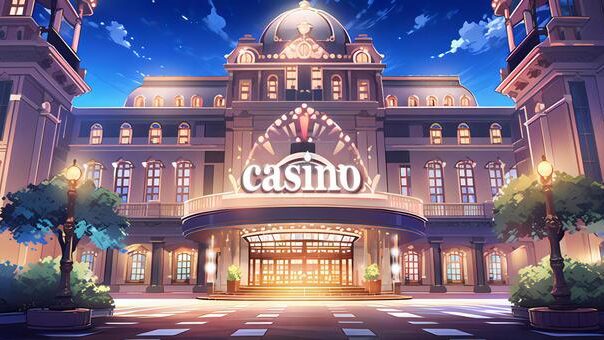Navigating the Stakes of the Casino Business: An Insider’s Gamble
The allure of the casino business is akin to a high-stakes poker game – thrilling, potentially lucrative, and fraught with risk. As an aspirant to the “House always wins” adage, opening a casino is itself a gamble. But beyond the flashing lights and clinking of coins lies a web of financial, ethical, and legal complexities that is often overlooked by the casual observer. In this thought leadership article, we’ll dissect the multifaceted game of casino ownership, recognizing both the risks and the untold opportunities that underpin this unique and enduring industry.

The Core of Casino Ownership: More Than a Simple Real Estate Play
It’s a common misconception that the crux of casino ownership lies solely in the acquisition of prime real estate and the installation of the latest slot machines and gaming tables. However, the reality is far more intricate. Establishing a casino is akin to setting up a small city-within-a-city, complete with its infrastructure, regulations, and, most notably, the economics of a small country.
When one decides to enter the casino business, it’s imperative to understand the myriad costs involved. Beyond the initial investment in physical space and gaming technology, there are operation expenses, staffing costs, licensing, compliance, and, increasingly, technology integration and cyber-security. It’s not just about building a casino; it’s about sustaining one in a highly competitive and regulated industry.
The significance of software is not to be underestimated either. From the selection of the casino source code to the deployment of an efficient casino script, the digital infrastructure of a casino serves as its backbone, influencing everything from user experience to risk management.
The Wynns and Whys of Casino Profitability
The secret to a casino business profitability is not just in the games themselves but in the meticulous design of the entire establishment around the customer experience. Steve Wynn, one of the most influential figures in modern casino evolution, revolutionized the industry by emphasizing luxury and entertainment value. His resorts weren’t just about gambling; they were about world-class shows, gourmet dining, and opulent surroundings.
For the modern casino owner, the lesson is clear: diversify. A successful casino is no longer only a place for games but a fully immersive entertainment complex. The more reasons you give patrons to visit, the more likely they are to partake in your primary offering – gambling.
Developing a loyalty program that goes beyond mere points accrual can also be an effective tool. It’s about creating an ecosystem where customers feel valued and where their spending is incentivized. The aim is to create a community within a casino, one that feels exclusive and rewarding.
When the Chips Are Down: Mitigating the Casino’s Inherent Risks
The casino business, like any other, is not immune to market forces, regulatory changes, or public opinion. The volatility of the gambling industry can lead to quick gains, but the potential for rapid declines is equally present. Mitigating these risks requires a comprehensive approach to risk management, legal compliance, and staying attuned to customer trends.
In the wake of the COVID-19 pandemic, the casino industry was hit especially hard, highlighting the need for adaptable business models. While online gambling offers a potential hedge against physical closures, it also introduces new challenges, such as legal barriers, competition, and fraud prevention.
A proactive and forward-thinking stance on these issues is crucial. It requires an ongoing investment in technology, a robust legal team, and, perhaps most importantly, a willingness to listen to customer feedback and adapt accordingly.

Ethics and Responsibility in the World of Gambling
The moral implications of the casino business are not to be taken lightly. With the potential for addiction and financial ruin, there is a profound social responsibility that comes with casino ownership. Establishing responsible gaming protocols, partnering with addiction support services, and promoting a culture of ethical gambling is not just the right thing to do – it’s a business imperative.
The concept of providing a safe and responsible gaming environment may seem contrary to a casino’s profit motive. However, the long-term value of a casino’s reputation and customer loyalty far outweigh the short-term gains that may come from exploitative practices.
It is the ethical duty of the casino owner to recognize the potential harm their business can cause and take active steps to mitigate these risks. In doing so, a casino can not only become more profitable but can also be a force for positive change in the communities they serve.
Dispatch from Vegas: Bridging the Old with the New
The story of Las Vegas serves as a hands-on case study of the casino industry’s evolution. The Vegas boom of the 1930s laid the groundwork for what would become the global mecca of gambling, entertainment, and excess. It was a time when visionaries took a gamble on, quite literally, desert land, and transformed it into an oasis for those seeking an escape.
Today, the Vegas model remains relevant, with each new casino striving to surpass its predecessors in scale, extravagance, and technological innovation. The lesson for aspiring casino owners is not to merely replicate past successes but to build upon them, integrating the core values of responsible gaming, luxurious entertainment, and community engagement into every facet of the casino’s operations.

In Closing: The Paradox of the House Edge
Casino business is, unequivocally, a paradox in of itself – a confluence of risk and reward, opportunity and impact. It is a venture that requires an understanding of the industry’s complexity, a commitment to ongoing adaptation, a dedication to ethical practices, and an appreciation for the chance to contribute positively to the lives of your patrons.
For those intrigued by the prospect, my parting advice is to leave no stone unturned in your preparation. From understanding the intricacies of the casino source code to fostering a culture of responsible gaming, success in this domain requires a blend of business acumen, technological innovation, and a genuine desire to create an experience that transcends the act of gambling.
While the stakes are high, the potential return on such an investment is equally grand. In the world of casinos, as in life, fortune favors the bold – albeit, with due consideration for the human stories behind each roll of the dice.
If you’re looking to embark on this journey we’d be glad to help you get a swift start with one of our premade casino source codes
